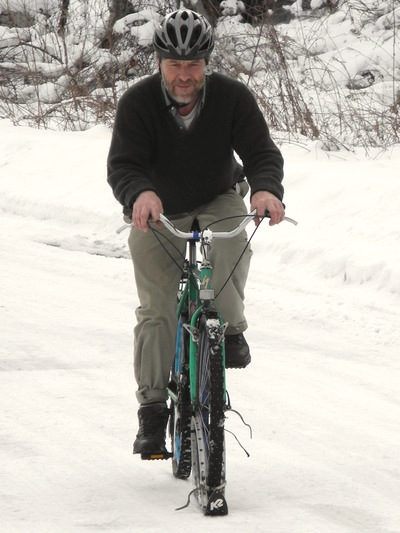In early February 2020 I wrote that, to do our part to help mitigate climate disruption, OCBC would begin an ambitious quest to transform our relaxed, Saturday morning bike education get-togethers (though we did call them “classes”), into a certification-worthy, workforce development program that could raise the rate of mode shift from cars to bikes, by putting more, better paid bicycle repairers into the world.
By March, OCBC had suspended all classes, volunteering and shop-use. And by June, local bike shops around the world were nearly out of bikes, repairs were booked weeks out, and the global bike parts supply chain had collapsed.
So we figured out how to schedule drop-off repairs, and do them on bikes that most shops would have charged more than the cost of the bike to do, if at all. We had gotten through the first parts of our new curriculum — the check lists for assessing the work needed to refurbish bikes, and for ensuring it was done right — so we started a system to send donated bikes to be refurbished at home by graduates of the old “class series,” and set up an Online Shop to sell them — with proper fitting, and minimal contact.
So we’ve survived 2020 with lots of creative work from a small group of people — our board, staff, and key volunteers — and several valuable lessons learned; some that will serve us forever, and a few we hope to need only a bit longer. We will still work toward our climate change mitigation goals, with hope that their achievement will be hastened by our pandemic experience, and the reminder, evidently, of their urgency by the fact of Covid-19 itself.
I thought about this long process when I read about a debate around Deep Adaptation, which argues that,
even an absolute end to carbon emissions, use of geoengineering, or large-scale infrastructure changes are now insufficient to avert systemic upheaval.[6][2] [The author] describes a three-part strategy to allow ‘deep adaptation’ to climate change: “resilience” through infrastructure upgrades, “relinquishment” by giving up aspects of civilization that lead to additional climate risk, and “restoration,” a return to older culture values and practices.[6] After the paper was released, he added a fourth part to the framework, “reconciliation” which “is all about living in peace.[4]
(Wikipedia)
Arguments over climate-action messaging strategies aside, this is nothing new, at least since the first Earth Day fifty years ago. We could certainly use some resilience in the U.S. bike industry, and really wish we had some in our health care system; but the other three parts are just a reshuffling of OCBC’s tenets of Respect, Resourcefulness, and Reciprocity. We could all just try to be nice to each other, use less stuff, and ride bikes more often, for a good start. And try to get more bike repairers good, steady jobs, and fair pay.
If you would like to help in this effort, we will be starting asynchronous/remote/curated classes (with quizzes and grades!), starting in February with Bike Basics. Even if you know how to, say, change a flat, we’ll be asking anyone who wants the full education to take all three Shop Class series (though a test-out may be available for some). Look for the updated sign-up for Bike Basics soon, and the more advanced series soon after that.
Of course you can also still help OCBC with a cash donation anytime, and join the record number of folks who have donated what is nearing a record amount in 2020 to help us keep on “helping people use bicycles.” We appreciate every one of those donations — no matter the amount, as well as your support of so many different kinds, over all these years.

Jim
Director, Ohio City Bicycle Co-op
1840 Columbus Rd
Cleveland, Ohio 44113
216 830 2667
OhioCityCycles.org